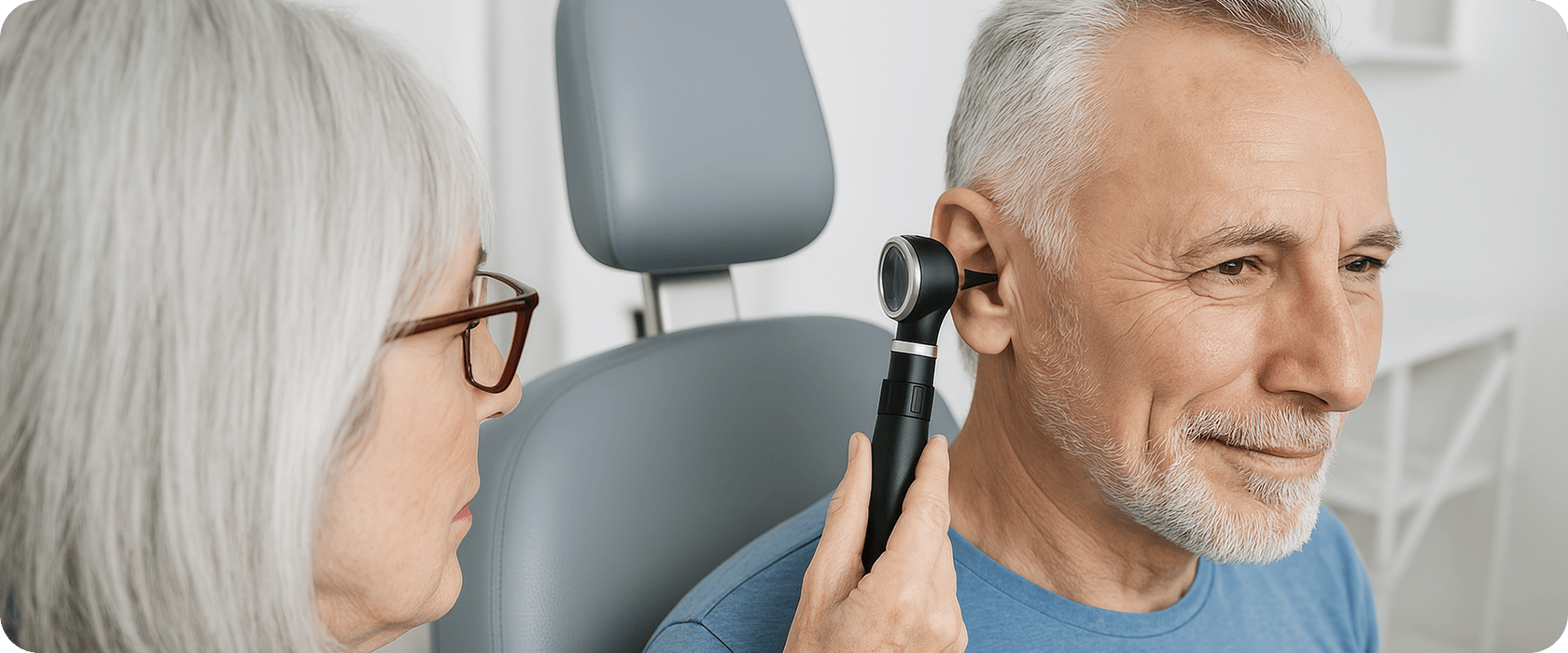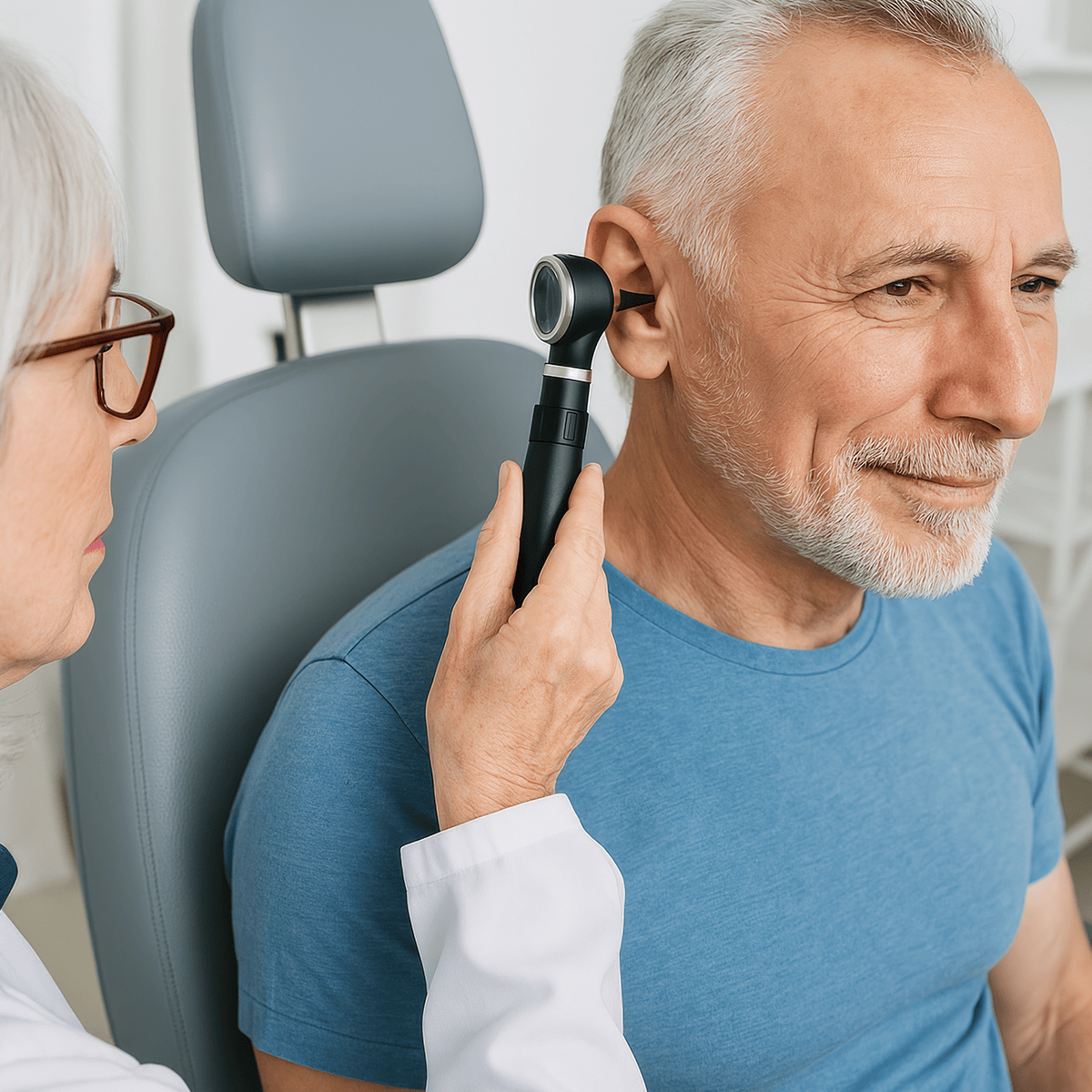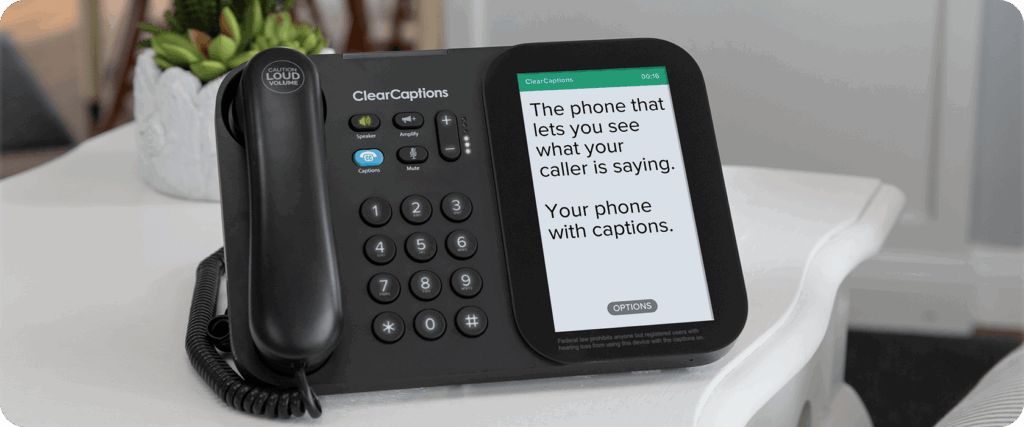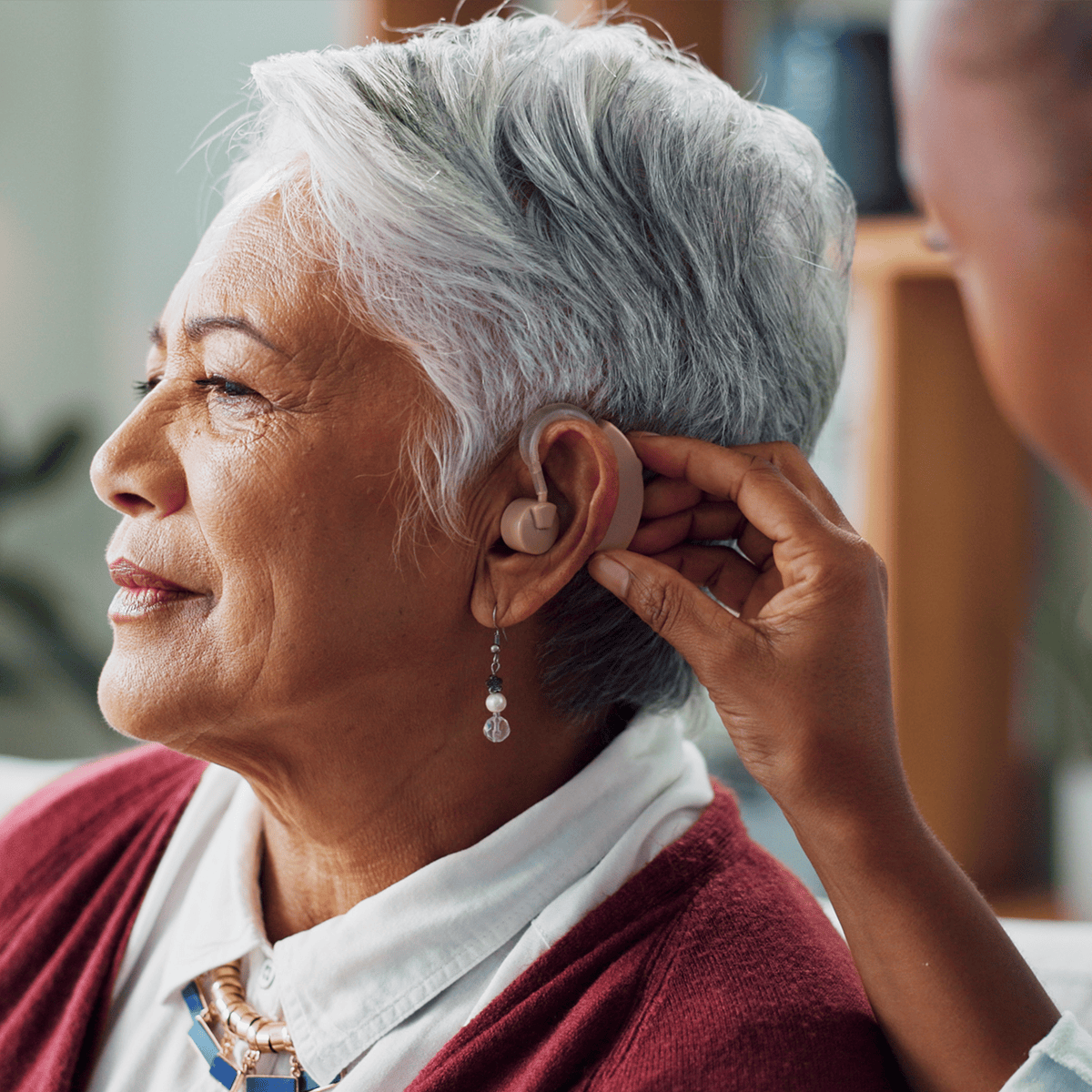Hearing Exams for Seniors: What to Expect and Why It Matters


Key Takeaways
- Hearing tests are quick, painless, and very important for seniors.
- After the age of 60, it is recommended that most adults have their hearing checked every one to three years.
- There are various types of tests to assess different aspects of a person’s hearing.
- Medicare may cover hearing tests if a primary care doctor recommends them.
- Regular hearing assessments can help address problems early.
As a caregiver, you know it’s important to keep up with your loved one’s yearly physical and biyearly dentist appointments, but when was the last time they had a hearing exam? Staying up-to-date on hearing tests can help address hearing concerns before they become a larger problem.
What is a Hearing Exam, and Why is it Important for Seniors?
A hearing exam is a simple check-up that tests a patient’s ability to hear different sounds. Age-related hearing loss is normal, so it’s especially important for seniors to get regular check-ups to take care of their hearing health.
When Should Seniors Consider a Hearing Exam?
If your loved one is over the age of 60 and hasn’t had a hearing assessment yet, it’s a good time to schedule one. Some other telltale signs of hearing loss include:
- Having trouble hearing on the phone
- Needing to turn the TV or radio up louder than usual
- Asking people to repeat themselves
- Saying that they feel dizzy or have ringing in their ears
- Avoiding social situations
Common Types of Hearing Tests
Doctors use different types of tests to check their patients’ hearing. Some of the most common types include:
- Pure-tone audiometry: Also known as an audiogram test, during this test, the patient will wear headphones and listen for beeps at different volumes and pitches.
- Speech audiometry: This test checks how well the patient understands speech by playing different words through a set of headphones.
- Tympanometry: This test can find middle ear problems by focusing on how well the eardrum moves.
- Otoacoustic emissions (OAE): This checks the tiny hair cells in a patient’s inner ear that are important for hearing.
Preparing for a Hearing Assessment
Here are some things you can do to make the appointment go smoothly:
- Help them make a list of any ear or hearing problems they’ve had.
- Write down any medicines they take.
- Gently clean around the outside of their ears.
- Attend the appointment with them for support.
What to Expect During a Hearing Exam
Most hearing exams will take between 30 and 60 minutes. It starts with a doctor looking inside the ear canal for any wax buildup or visual problems within the ear canal or the eardrum.
Then, they will set up the hearing tests. For most tests, the patient will sit in a quiet room or booth wearing headphones and respond whenever they hear certain sounds or words.
While new experiences can be stressful, audiometry tests are painless. The patient just needs to follow the directions given by the doctor.
What the Results Mean
After the tests, the hearing specialist will explain the results:
- Normal hearing: A person with normal hearing can hear soft sounds across all pitches or frequencies.
- Mild hearing loss: With mild hearing loss, someone may miss softer sounds, especially high-pitched ones, but can still hear most conversations in quiet settings.
- Moderate to severe hearing loss: People with moderate to severe hearing loss miss a lot of sounds, particularly softer ones. They may also have trouble understanding speech, especially in noisy places.
The specialist will explain if the issue is with the outer, middle, or inner ear, or the nerves, and recommend the best treatment.
Cost and Insurance Coverage
Just like any other medical test, some seniors may be concerned about the cost of their care. Luckily, Medicare often covers diagnostic hearing tests if a doctor orders them. However, they usually do not cover routine exams or hearing aids.
Sometimes, Medicare Advantage plans or private healthcare plans offer additional coverage for these services. You may also be able to schedule a basic hearing screening for your loved one at a community health center or a hearing aid company.
Resources and Support for Hearing Loss
There are many resources available to help, including educational support and connections through the Hearing Loss Association of America or clinical services through Veterans Affairs.
In addition to services and support groups, there are also tools that can make life easier. For example, if your loved one struggles with talking on the phone, a caption phone through ClearCaptions displays the caller’s words so they can read and hear at the same time, making phone conversations easier and less stressful for individuals with hearing difficulties.
Next Steps After a Hearing Assessment
After the test, a specialist may suggest that the person you’re caring for:
- Get fitted for hearing aids or other devices.
- Schedule additional testing or appointments to address infections or wax buildup.
- Learn different communication strategies to help in difficult situations.
As a trusted caregiver, it’s important to help them follow their hearing specialist’s advice. The sooner they address hearing problems, the better.
Frequently Asked Questions
How often should seniors get a hearing exam?
Most hearing experts recommend that adults over 60 get a hearing exam every one to three years, or immediately if they are experiencing hearing loss or other ear problems.
Does Medicare cover hearing tests and audiometry?
Medicare covers diagnostic hearing exams if ordered by a doctor, but not the cost of routine hearing screenings or hearing aids. However, some Medicare Advantage plans offer more coverage.
Are hearing exams painful or uncomfortable for older adults?
No, hearing exams don’t hurt at all. Most seniors find the appointments easy, interesting, and sometimes relaxing. If your senior feels nervous or anxious about the test, ask the doctor to explain each step.
Sources
https://www.aarp.org/medicare/faq/does-medicare-cover-hearing-tests/








